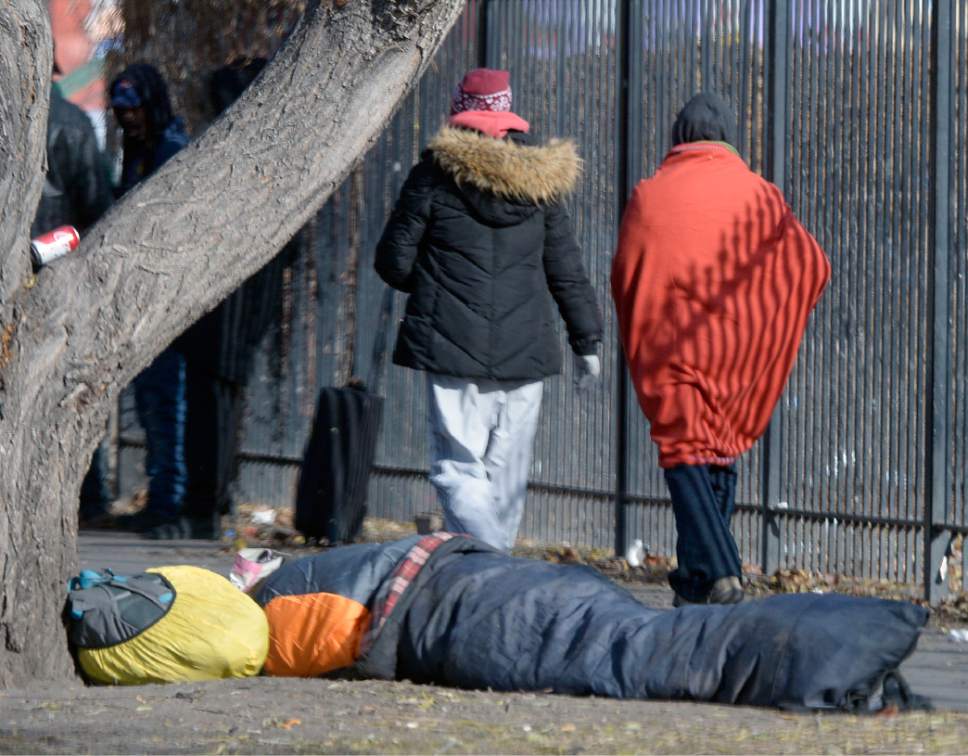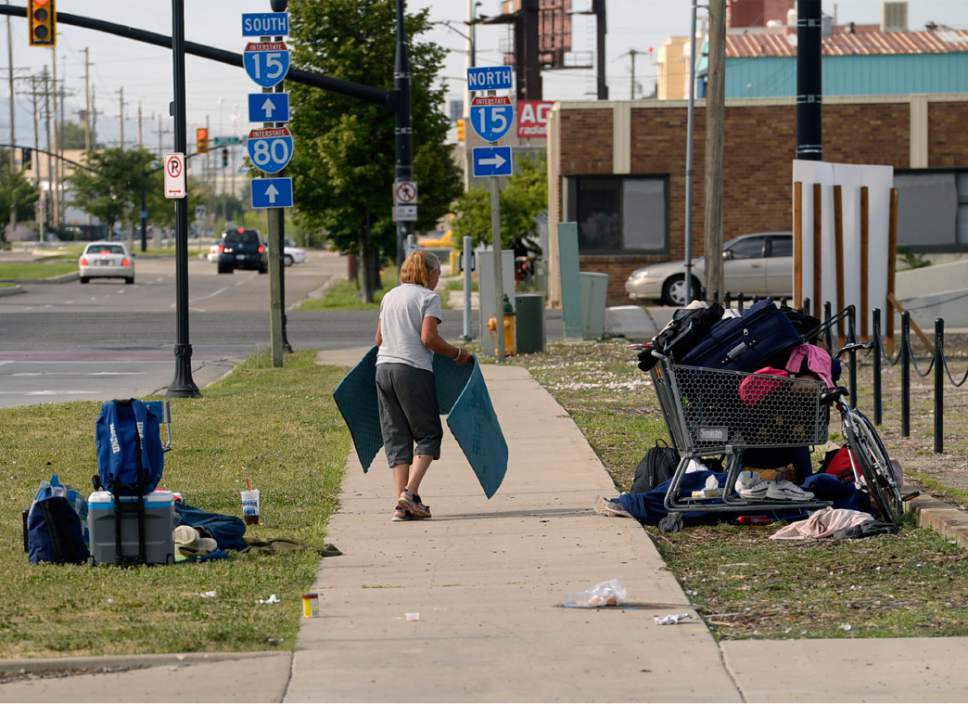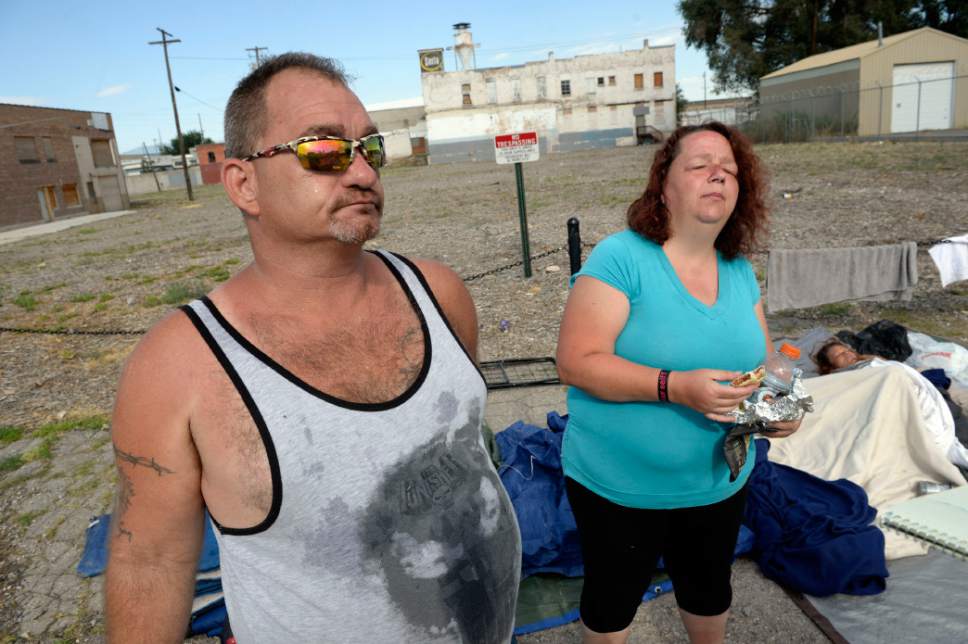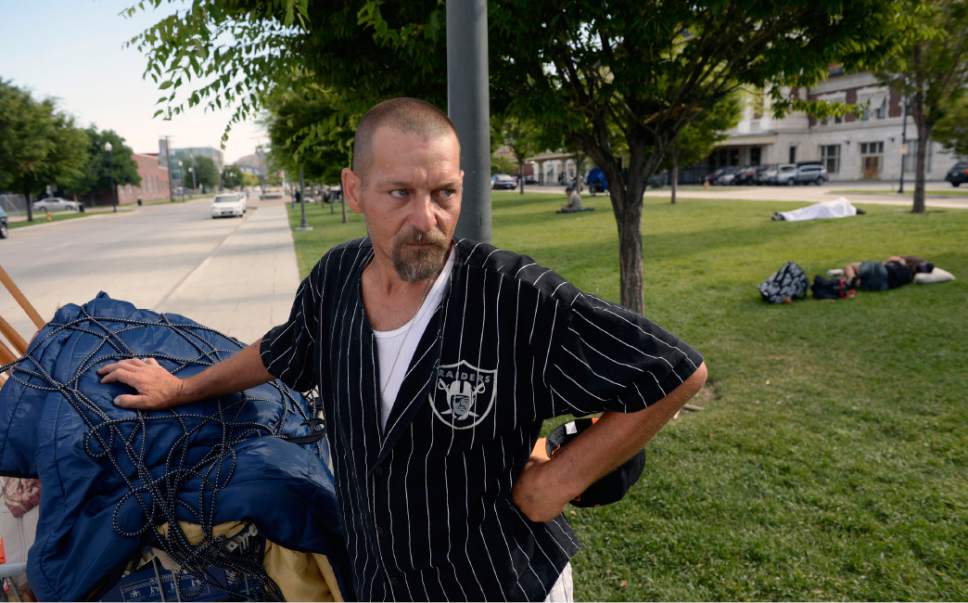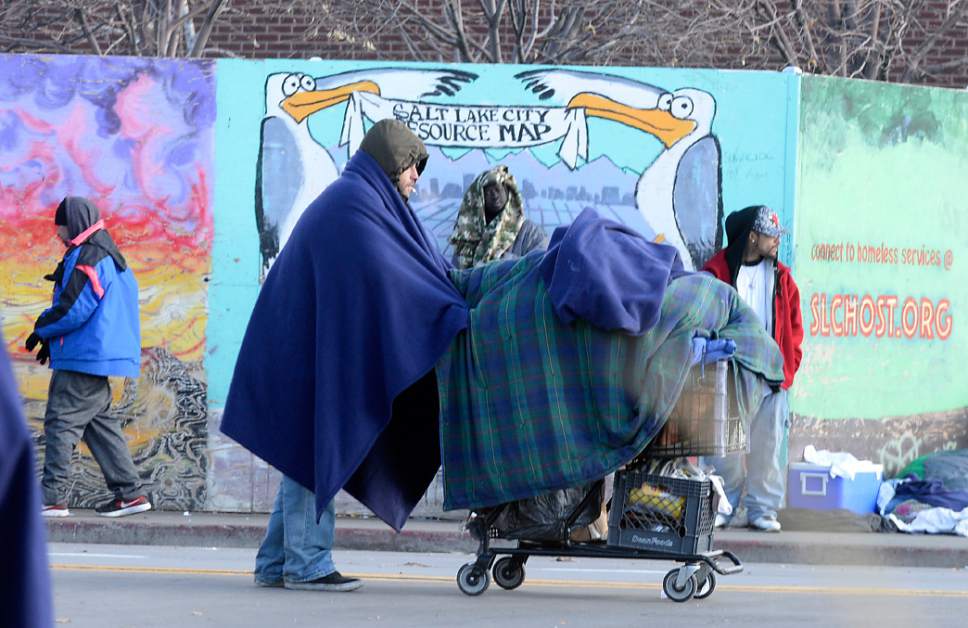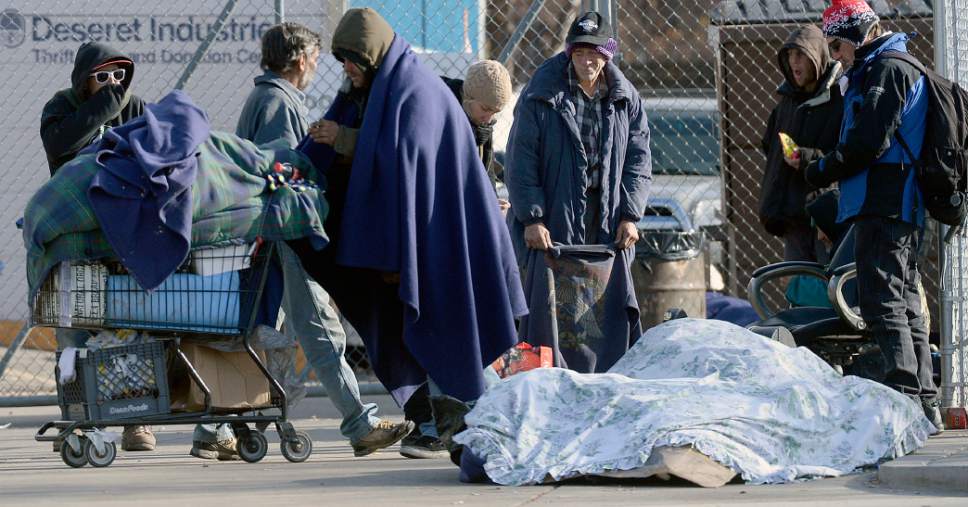This is an archived article that was published on sltrib.com in 2017, and information in the article may be outdated. It is provided only for personal research purposes and may not be reprinted.
Think of it as a KOA campground for homeless people that would be conveniently located at the corner of 100 South and 600 West in Salt Lake City.
That is one proposal outlined in Salt Lake County Sheriff Jim Winder's 21-point plan to deal with homelessness.
Another tenet of the plan calls for The Road Home shelter on Rio Grande Street to reduce its clientele from about 1,100 to 200 by June 1 — two months from now.
"It is critical," the plan states, "that the facility limit entry until such time as the facility can demonstrate that populations above 200 can be maintained without the collateral community impacts."
The area around the shelter is known for its chaos, lawlessness and drug dealing.
But where the other 900 residents would go remains unclear.
Legislators, municipal governments and service providers recently agreed to close the shelter by June 30, 2019, after new shelters and detox facilities open.
Winder's plan also includes such proposals as closing the state liquor store at the corner of 400 South and 200 West; confiscating bicycles used in illicit activities; creating an "alternative-giving" model to curb panhandling; and implementing license plate readers to identify drug buyers who frequent the area.
The sheriff's plan also would necessitate a more clearly defined city ordinance eliminating the ability of individuals to erect or maintain any structure for sleeping or temporary habitation.
The proposed campground would not allow alcohol, drugs or pets.
Winder recently presented the draft plan to downtown business leaders.
The Pioneer Park Coalition, an organization of developers, business owners, residents and others, gave the plan a full-throated endorsement Tuesday.
"We appreciate the sheriff for his work in bringing a concrete action plan that addresses rampant drug dealing, crime and camping in the Rio Grande neighborhood," the organization said in a statement. "The Executive Committee has voted to support all of the recommendations in this plan and would like to publicly support it."
In contrast, the Downtown Alliance, a business group, refused to endorse the plan.
Jason Mathis, the alliance's executive director, said that although the group appreciates the sheriff's efforts, it can't go along with various parts of the plan, including the proposal for a campground and the June 1 date to reduce the shelter to 200 people.
A spokesman for the Unified Police Department, Lt. Brian Lohrke, said the sheriff was out of town and could not be contacted.
Winder has been criticized for not booking into the Salt Lake County jail some homeless people who have been arrested for misdemeanor crimes, most of which are related to narcotics. The sheriff has said that society cannot arrest its way out of drug addiction.
Winder's plan caught some by surprise. Tuesday, a spokesman for Salt Lake City Mayor Jackie Biskupski said she has not seen the plan and, therefore, could not comment.
City Councilman Derek Kitchen, whose District 4 encompasses both The Road Home and the proposed campground site, also said he had not heard of the proposal.
But Kitchen added that he was open to discussing the campground proposal because the current situation on 500 West, where many homeless people now camp, is unacceptable.
He noted, however, that the proposal would have to be thoroughly vetted and that both Biskupski and Salt Lake County Mayor Ben McAdams would have to be on board before he could support it.
A spokeswoman for McAdams said he has had only preliminary discussions with Winder regarding the plan.
"[B]ut that [McAdams] thinks some interesting ideas have been presented in the sheriff's draft proposal and he is willing to explore those that could be incorporated in the effort to address the situation at Rio Grande Street," said Alyson Heyrend in an email.
Recently, two new shelter sites have been selected in Salt Lake City at 275 W. High Ave. (1400 South) and 131 E. 700 South. The location of a third site in Salt Lake County is expected to be announced later this week.


